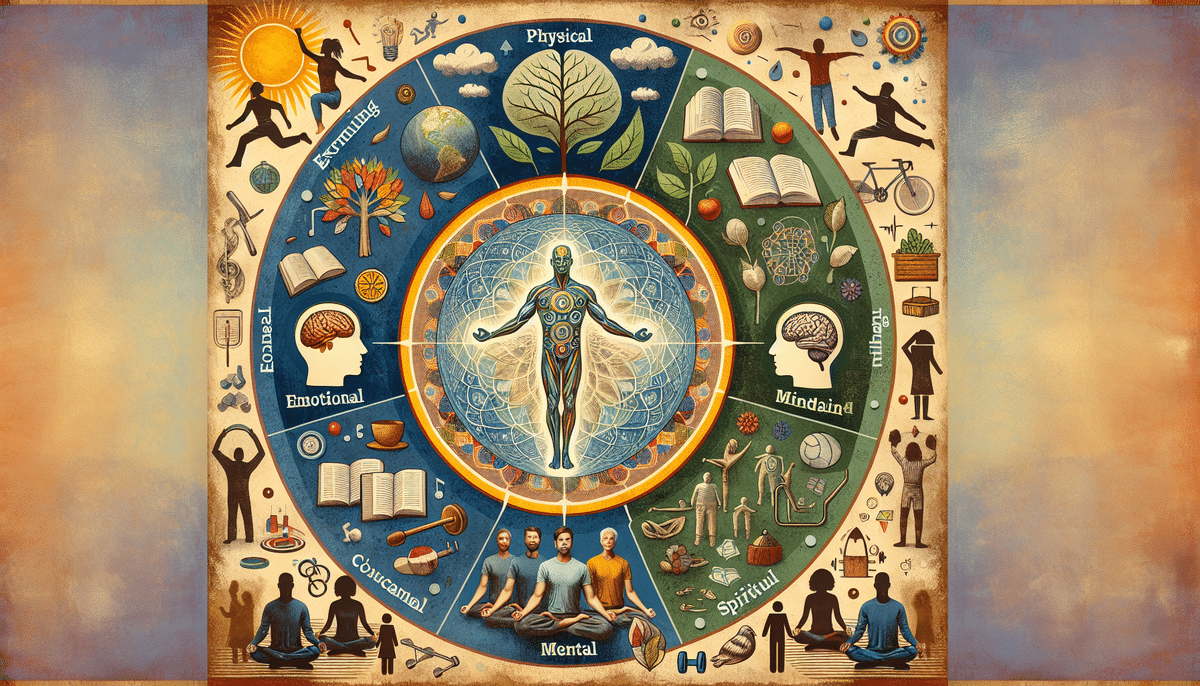5 Things to Drive Fulfillment Forward
Achieving a sense of fulfillment in life is something that many of us strive for. It can be a lifelong journey, full of ups and downs, but it is ultimately an incredibly rewarding one. In this article, we will explore the four pillars of fulfillment, the science behind what drives it, and offer practical strategies to help you cultivate a growth mindset and find fulfillment in all areas of your life.
Why Fulfillment is Important for Your Personal and Professional Life
Understanding what fulfillment means to you and how to achieve it is crucial not only for your personal life but also for your professional life. Studies have shown that employees who have a sense of fulfillment in their work are more engaged, productive, and ultimately more successful (ShipScience Research). In addition, having a sense of purpose and fulfillment in your personal life can result in better overall well-being and greater happiness.
Furthermore, achieving fulfillment in both your personal and professional life can lead to a greater sense of balance and harmony. When you feel fulfilled in your work, you are more likely to have the energy and motivation to pursue your personal passions and interests outside of work. Similarly, when you have a fulfilling personal life, you are more likely to bring a positive attitude and sense of purpose to your work. This balance can lead to a more satisfying overall life experience.
Understanding the Four Pillars of Fulfillment: Physical, Emotional, Mental, and Spiritual
In order to achieve true fulfillment, it’s important to focus on all four pillars: physical, emotional, mental, and spiritual. Physical fulfillment includes feeling healthy and strong, emotional fulfillment relates to having strong relationships and a sense of security, mental fulfillment encompasses intellectual growth and challenges, and spiritual fulfillment involves a sense of purpose and connection to something greater than oneself.
Each person’s journey toward fulfillment may look different. Some may find physical fulfillment through exercise and healthy eating, while others may find it through rest and relaxation. Emotional fulfillment may come from spending time with loved ones or pursuing hobbies, while mental fulfillment may come from learning new skills or taking on challenging projects. Spiritual fulfillment may come from practicing a religion or connecting with nature. Prioritizing all four pillars is essential to achieving a well-rounded sense of fulfillment.
The Science Behind Fulfillment: How Dopamine and Serotonin Affect Your Happiness
Dopamine and serotonin are two neurotransmitters that play a crucial role in our quest for fulfillment. Dopamine is associated with motivation and reward, while serotonin is linked to feelings of well-being and happiness. When we experience positive events, such as achieving a goal or spending time with loved ones, our brains release dopamine and serotonin, creating a sense of pleasure and fulfillment (National Institutes of Health).
However, an imbalance of these neurotransmitters can lead to negative effects on our mental health. Low levels of dopamine have been linked to depression and lack of motivation, while low levels of serotonin have been associated with anxiety and mood disorders. Therefore, maintaining a healthy balance of these neurotransmitters through activities such as exercise, meditation, and socializing is crucial for sustained happiness and fulfillment.
Identifying Your Unique Fulfillment Drivers: Personality Traits and Life Experiences
To achieve fulfillment, it’s important to identify what drives you as an individual. This includes understanding your personality traits and life experiences that have shaped your values and priorities. For example, if you value creativity, exploring new hobbies or artistic endeavors may be a source of fulfillment for you.
Additionally, recognizing your personal strengths and skills can guide you toward activities and pursuits that bring a sense of accomplishment and satisfaction. Understanding what you excel at and what comes naturally to you can help streamline your path to fulfillment.
Fulfillment can stem from various areas of your life, such as relationships, career, or personal growth. Reflecting on which areas are most important to you and what you wish to achieve can help identify your unique fulfillment drivers.
Cultivating a Growth Mindset to Achieve Fulfillment in All Areas of Life
Having a growth mindset can help you achieve greater fulfillment in all areas of life. This involves embracing challenges as opportunities to learn and grow, rather than fearing failure. By adopting a growth mindset, you can develop new skills, take on new challenges, and ultimately achieve greater success and fulfillment (ShipScience Insights).
One way to cultivate a growth mindset is to focus on the process rather than the outcome. Instead of fixating on the end result, concentrate on the steps needed to get there. This approach helps maintain motivation and engagement, even when faced with setbacks.
Another aspect of a growth mindset is the willingness to seek out feedback and learn from it. Viewing criticism as an opportunity for improvement rather than a personal attack allows you to identify areas for growth and work towards becoming the best version of yourself.
Balancing Work and Life: Strategies to Find Fulfillment in Both
Striking a balance between work and personal life is essential for achieving overall fulfillment. This involves setting boundaries, prioritizing self-care, and integrating your passions and interests into your work life. Building strong relationships with colleagues and seeking opportunities for career growth also contribute to a sense of fulfillment.
- Establish a Routine: Set specific work hours and adhere to them, while also scheduling time for hobbies, exercise, and social activities.
- Communicate Boundaries: Clearly communicate your personal time boundaries to employers and colleagues to ensure respect and understanding.
- Incorporate Passions: Find ways to integrate your interests into your work to increase engagement and satisfaction.
By creating a healthy balance between work and personal life, you can enhance your overall well-being and find greater fulfillment in both areas.
How to Set Goals that Align with Your Values for Greater Fulfillment
Setting goals that align with your values is key to achieving fulfillment. Instead of basing goals solely on external factors, such as earning more money or achieving a certain status, focus on goals that resonate with your personal values and priorities. This alignment creates a sense of purpose and motivation, leading to greater fulfillment.
To identify your personal values, reflect on what is most important to you in life. This could include aspects like family, health, personal growth, or making a positive impact on the world. Once your values are clear, set goals that support and enhance these values.
Aligning your goals with your values doesn't mean sacrificing external success. In fact, when your goals align with your values, you’re more likely to achieve external success because you’re motivated by a deeper sense of purpose. Take time to reflect on your values and set goals that will bring you both fulfillment and success.
The Role of Relationships in Fulfillment: Building Strong Connections with Family, Friends, and Colleagues
Strong relationships with friends, family, and colleagues are essential for achieving fulfillment. Investing in these relationships and fostering a sense of community creates a support network that helps navigate life’s challenges and celebrate its victories. Healthy relationships offer a sense of belonging and significantly contribute to emotional and spiritual fulfillment.
Research has shown that strong social connections positively impact physical health. Individuals with robust social ties have a lower risk of developing chronic diseases such as heart disease, diabetes, and depression (National Institutes of Health). This underscores the importance of investing in relationships not only for emotional well-being but also for overall health.
Overcoming Obstacles to Fulfillment: Addressing Fear, Doubt, and Self-Limiting Beliefs
Obstacles like fear, doubt, and self-limiting beliefs can hinder the pursuit of fulfillment. Addressing these challenges head-on is crucial for personal growth and fulfillment. Strategies to overcome these obstacles include seeking support from a therapist or mentor, developing a self-care routine, and reframing negative thought patterns to focus on growth and positivity.
- Take Small Steps: Breaking goals into manageable steps builds confidence and momentum, making larger goals feel less daunting.
- Practice Mindfulness: Techniques such as mindfulness and meditation can reduce anxiety and help focus on the present moment.
- Challenge Beliefs: Question self-limiting beliefs by seeking alternative perspectives and experimenting with new behaviors.
By actively challenging and replacing self-limiting beliefs, you can open up new possibilities for growth and fulfillment.
Giving Back: Why Helping Others is Key to Achieving Lasting Fulfillment
Helping others is a powerful tool for achieving lasting fulfillment. Whether it’s volunteering in your community, taking on leadership roles, or offering support to friends and family, giving back allows you to make a positive impact on the world and connect with something greater than yourself.
Studies have shown that giving back positively impacts mental health. Engaging in acts of kindness and generosity increases feelings of happiness, reduces stress and anxiety, and even improves physical health (National Institutes of Health). Additionally, volunteering provides a sense of purpose and meaning, leading to greater overall satisfaction and fulfillment.
Incorporating Mindfulness into Your Daily Routine for Increased Fulfillment
Incorporating mindfulness into your daily routine can significantly enhance your sense of fulfillment. Mindfulness involves being present in the moment, paying attention to your thoughts and emotions, and practicing self-reflection. This practice helps identify areas where you may be struggling or feeling unfulfilled and develop strategies to address these challenges.
- Morning Meditation: Start your day with a short meditation to center your thoughts and set a positive tone.
- Mindful Eating: Pay attention to the taste, texture, and sensations of your meals to enhance your eating experience.
- Reflective Journaling: Spend a few minutes each day writing about your experiences and feelings to increase self-awareness.
Regular mindfulness practice fosters a deeper connection with yourself and your surroundings, contributing to sustained fulfillment.
Measuring Success beyond Material Wealth: Defining Success on Your Own Terms
Measuring success solely based on material wealth and external markers can be limiting. Instead, define success on your own terms, based on what you value and what brings you a sense of fulfillment. This personal definition might prioritize relationships, personal growth, or contributing to your community in meaningful ways.
Defining success personally ensures that your achievements align with your values, leading to a more meaningful and satisfying life. It allows you to celebrate successes that genuinely matter to you, rather than conforming to societal expectations.
Remember, success is subjective and varies from person to person. By defining it for yourself, you create a path that leads to genuine fulfillment and happiness.
Creating a Plan of Action for Long-Term Fulfillment
Achieving long-term fulfillment requires a comprehensive plan of action that incorporates various strategies. This includes setting meaningful goals, developing a self-care routine, fostering strong relationships, and giving back to others. Here are steps to create your plan:
- Set Clear Goals: Define what fulfillment looks like for you in different areas of your life.
- Develop Self-Care Practices: Incorporate activities that promote physical, emotional, and mental well-being.
- Build and Nurture Relationships: Invest time and energy into maintaining strong connections with loved ones and colleagues.
- Give Back: Engage in activities that allow you to contribute to your community and help others.
- Reflect and Adjust: Regularly assess your progress and make necessary adjustments to stay aligned with your goals and values.
By taking intentional, meaningful steps toward fulfillment, you can create a life rich with purpose, connection, and happiness.




















